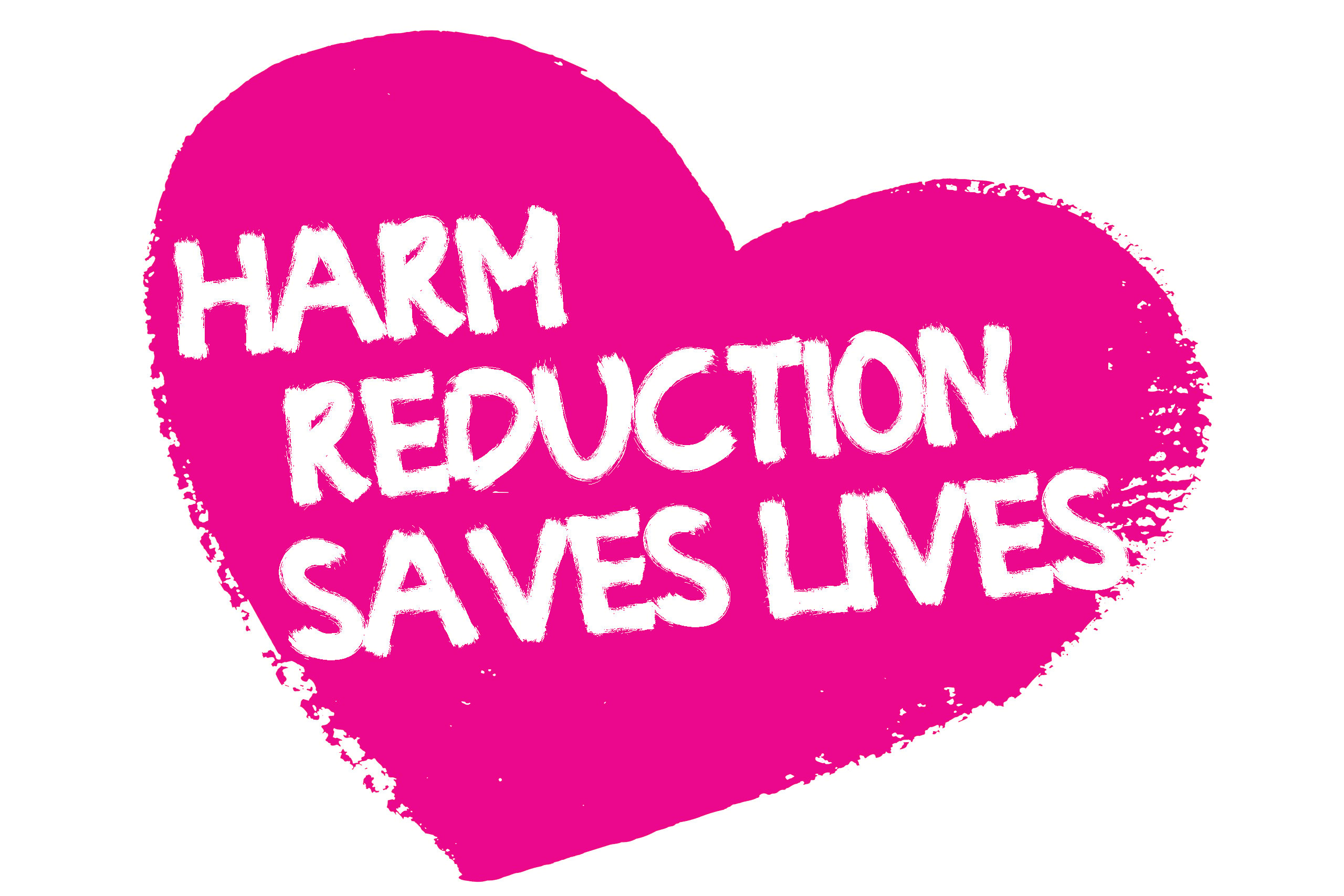Community Health Services
DAP Health offers FREE STI testing and treatment, Pre-Exposure Prophylaxis (PrEP) and Post-Exposure Prophylaxis (PEP) services, Pregnancy Testing and Birth Control Consultation.
Call to make an appointment at our Palm Springs, Cathedral City, or Indio location.
Click Here for Hours and Locations
According to the National Harm Reduction Coalition, it’s “a set of practical strategies and ideas aimed at reducing negative consequences associated with drug use. Harm reduction is also a movement for social justice built on a belief in, and respect for, the rights of people who use drugs.”
DAP Health is further removing barriers to access to sexual wellness services by offering free STI testing and treatment.
Sexually transmitted infections (STIs) are common and the rates in the Coachella Valley are high. You can have an STI without knowing it. In many cases, there are no signs or symptoms. DAP Health is ready to assist you quickly and confidentially with the information, testing and treatment you need for STIs including Chlamydia, Gonorrhea, Hepatitis C (HCV), HIV, and Syphilis – all for free.
Non-invasive, self-swab STI testing for people AFAB or born with a uterus is available at no extra cost.
DAP Health offers testing for STIs, HCV, and HIV and provides PrEP and PEP counseling. If you are concerned about HPV, Herpes or other conditions, or are in need of a PAP test, please ask us about becoming a Health Center client, or make an appointment with your primary care physician.
Use MyChart or call DAP Health at (760) 992-0492 to schedule an appointment today.
DAP Health’s reproductive health program for people assigned female at birth (AFAB) or born with a uterus includes birth control, pregnancy testing, and STI testing and treatment.
A variety of birth control options are available, and DAP Health’s expert staff members are here to help you figure out what works best for you and your health. These services are accessible to everyone 17 years of age and up. Our services are provided at no cost.
Birth Control
DAP Health offers prescriptions for most birth control options, plus emergency contraceptives.
Its clinics do not provide IUDs, the implant, or other long-acting birth control methods, including permanent birth control (tubal-ligation or vasectomy). You need to see your OB-GYN or urologist for permanent birth control.
Birth Control Options
- Oral birth control pills (combined, or progestin only)
- Birth control patch
- Vaginal ring
- Depo-Provera shot (contraceptive injection)
- Non-hormonal gel
- Condoms (female and male)
Emergency Contraception Options
- Oral emergency contraception (Plan B) is available over the counter, but DAP Health can also provide a prescription if you want to run the pills through your insurance.
- Alternative options can be recommended
Pregnancy Testing
- Pregnancy tests are conducted through a urine sample
- Referrals to OB-GYNs are offered for any positive pregnancy test or abnormal findings.
STI Testing & Treatment
- No-cost STI testing and treatment are also available for people AFAB or born with uterus.
- DAP Health offers non-invasive, self-swab STI testing for people AFAB or born with a uterus.
PrEP can help prevent HIV and PEP (Post-Exposure Prophylaxis) – used within 72 hours prevents HIV.
PrEP is a way for people who do not have HIV to prevent getting it by taking a daily pill. Along with other prevention methods like condoms, PrEP can offer good protection against HIV if taken every day.
DAP Health offers PrEP Talks – a free one-on-one appointment to talk with a PrEP Navigator about this medication to prevent HIV. This service is open to the public, for anyone who’d like to talk in depth about PrEP, get their questions answered, and get the facts.
PrEP is a medication that must be prescribed by a doctor. Prior to speaking to a medical provider, a PrEP Talk can answer your basic questions and provide the knowledge you need to decide your next step.
Take advantage of our free PrEP consultation by calling 760-218-1649, M-F, 9 a.m. – 4 p.m. If you're calling after hours, please leave a voicemail and we will return your call the next business day.
For more information, please visit the U.S. National Library of Medicine at https://hivinfo.nih.gov/understanding-hiv/fact-sheets/pre-exposure-prophylaxis-prep
Knowing your status is important. We offer free HIV testing in-person as well as with our free self-HIV test that can be discreetly mailed to you or picked up at DAP Health.
Request a free HIV self test here.
An estimated 1.1 million people in the United States are living with HIV, including about 162,500 people who are unaware of their status. Nearly 40% of new HIV infections are transmitted by people who do not know they have the virus. For people with undiagnosed HIV, testing is the first step in maintaining a healthy life and reducing the spread of HIV.
Should I Get Tested for HIV?
CDC recommends everyone between the ages of 13 and 64 get tested for HIV at least once.
Getting an HIV test is the only way to know if you have HIV. Our knowledgeable, experienced, certified HIV Test Counselors will conduct the test and can answer your questions in a confidential setting. Whether your results are negative or positive, they can provide information and referrals to help you to stay safe and stay healthy.
If you were HIV-negative the last time you were tested, the test was more than one year ago, and you can answer yes to any of the following questions, then you should get an HIV test as soon as possible:
- Are you a man who has had sex with another man?
- Have you had sex—anal or vaginal—with a partner who is living with HIV?
- Have you had more than one sex partner since your last HIV test?
- Have you injected drugs and shared needles, syringes, or other drug injection equipment (for example, cookers) with others?
- Have you exchanged sex for drugs or money?
- Have you been diagnosed with or treated for another sexually transmitted disease?
- Have you been diagnosed with or treated for hepatitis or tuberculosis (TB)?
- Have you had sex with someone who could answer yes to any of the above questions or someone whose sexual history you don’t know?
You should be tested at least once a year if you keep doing any of these things. Sexually active gay and bisexual men may benefit from more frequent testing (for example, every 3 to 6 months).
If you’re pregnant, talk to your health care provider about getting tested for HIV and other ways to protect you and your child from getting HIV.
Before having sex for the first time with a new partner, you and your partner should talk about your sexual and drug-use history, disclose your HIV status, and consider getting tested for HIV and learning the results.
For more information, please visit the U.S. National Library of Medicine at https://hivinfo.nih.gov/understanding-hiv/fact-sheets/hiv-testing
Use MyChart or call us at (760) 992-0492 to schedule an appointment today.
Mpox Vaccine and Testing At DAP Health
Need to get your Mpox Vaccine? DAP Health’s Sexual Wellness Clinics continue to offer Mpox vaccines to the community at no cost, simply call to make an appointment for your vaccine today. Vaccination is highly recommended for prevention. No additional booster doses are recommended after you have received the two-dose initial series.
Having Possible Mpox Symptoms? DAP Health’s Sexual Wellness Clinics are here to help you. If you feel you may have Mpox symptoms and need to get tested, please call us today for a full STI screening including testing of Mpox lesions.
Transmission
Mpox is known to spread through prolonged close physical contact with someone who has symptoms.
- Rash, bodily fluids (such as pus or blood from skin lesions), and scabs are particularly infectious.
- Respiratory droplets, ulcers, lesions, or sores in the mouth can also be infectious, meaning the virus can spread through saliva.
- Clothing, bedding, towels, or objects like eating utensils/dishes that have been contaminated with the virus can infect others.
- People who closely interact with someone who is infectious, including health workers, household members, and sexual partners are at greater risk of infection.
- The virus can also spread from someone who is pregnant to the fetus from the placenta, or from an infected parent to child during or after birth through skin-to-skin contact.
It is unclear whether people who do not have symptoms can spread the disease.
Symptoms
Symptoms include rash, headache, fever, muscle and body aches, swollen lymph nodes, and back pain. The CDC recommends that anyone with a new or unexplained rash get checked by a medical professional.
Prevention
While the vaccine is effective in preventing illness from an exposure, it is possible to still be infected. However, symptoms generally are milder and the illness resolves in relatively shorter period than those unvaccinated.
Mpox can be transmitted through skin-to-skin contact which includes sexual contact. Prevention includes avoiding physical contact with someone who knows they have Mpox or who has a rash or skin lesions that may be associated with Mpox.
Testing
If Mpox is suspected, diagnostic samples must be collected from the suspect rash. The Clinician’s will take a swab of the fluid of vesicles, pustules, or dry crusts. Samples are sent to LabCorp for processing.
Treatment
Treatment is available through DAP Health in association with Riverside County Department of Public Health.
Trusted Sources of News and Updates:
California Department of Health
What is Hepatitis C?
Hepatitis C is a liver infection caused by the hepatitis C virus (HCV). Hepatitis C is a blood-borne virus. Today, most people become infected with the hepatitis C virus by sharing needles or other equipment to inject drugs. For some people, hepatitis C is a short-term illness but for 70%–85% of people who become infected with the hepatitis C virus, it becomes a long-term, chronic infection. Chronic hepatitis C is a serious disease than can result in long-term health problems, even death. Many people might not be aware of their infection because they are not clinically ill. There is no vaccine for hepatitis C. The best way to prevent hepatitis C is by avoiding behaviors that can spread the disease, especially injecting drugs.
How is Hepatitis C Spread?
Hepatitis C is usually spread when blood from a person infected with the Hepatitis C virus enters the body of someone who is not infected. Today, most people become infected with the Hepatitis C virus by sharing needles or other equipment to inject drugs. Before 1992, when widespread screening of the blood supply began in the United States, Hepatitis C was also commonly spread through blood transfusions and organ transplants.
People can become infected with the Hepatitis C virus during such activities as
Sharing needles, syringes, or other equipment to inject drugs
Needlestick injuries in health care settings
Being born to a mother who has Hepatitis C
Less commonly, a person can also get Hepatitis C virus infection through
Sharing personal care items that may have come in contact with another person’s blood, such as razors or toothbrushes
Having sexual contact with a person infected with the Hepatitis C virus
Are You at Risk for Hepatitis C?
Some people are at increased risk for Hepatitis C, including
- Current injection drug users (currently the most common way Hepatitis C virus is spread in the United States)
- Past injection drug users, including those who injected only one time or many years ago
- Recipients of donated blood, blood products, and organs (once a common means of transmission but now rare in the United States since blood screening became available in 1992)
- People who received a blood product for clotting problems made before 1987
- Hemodialysis patients or persons who spent many years on dialysis for kidney failure
- People who received body piercing or tattoos done with non-sterile instruments
- People with known exposures to the Hepatitis C virus, such as
- Health care workers injured by needlesticks
- Recipients of blood or organs from a donor who tested positive for the Hepatitis C virus
- HIV-infected persons
- Children born to mothers infected with the Hepatitis C virus
Less common risks include:
- Having sexual contact with a person who is infected with the Hepatitis C virus
- Sharing personal care items, such as razors or toothbrushes, that may have come in contact with the blood of an infected person
How Serious is Hepatitis C?
Chronic Hepatitis C is a serious disease that can result in long-term health problems, including liver damage, liver failure, liver cancer, or even death. It is the leading cause of cirrhosis and liver cancer and the most common reason for liver transplantation in the United States. Approximately 15,000 people die every year from Hepatitis C related liver disease.
Hepatitis Center of Excellence
Our Hepatitis Center of Excellence offers state-of-the-art treatment for Hepatitis C, including;
- Physicians and pharmacists who specialize in Hepatitis care
- Most insurance plans accepted, including Medicare and Medi-Cal
- Uninsured income-qualified patients can receive care at reduced costs
Sexual Wellness Services
To reach our after-hours answering service, please call (760) 323-2118.
Palm Springs
Monday-Friday 8:00 a.m. -5:00 p.m. (last appointment at 4:00 p.m.).
Closed for lunch from 11:45 a.m.-12:45 p.m.
Indio
81-719 Dr. Carreon Blvd., Suite D.
Monday-Friday 8:00 a.m. -5:00 p.m. (last appointment at 4:00 p.m.).
Closed for lunch from 11:45 a.m.-12:45 p.m.
Cathedral City
68555 Ramon Road, Suites 101-103-104-105
Monday-Friday 8:00 a.m. -5:00 p.m. (last appointment at 4:00 p.m.).
Closed for lunch from 11:45 a.m.-12:45 p.m.











